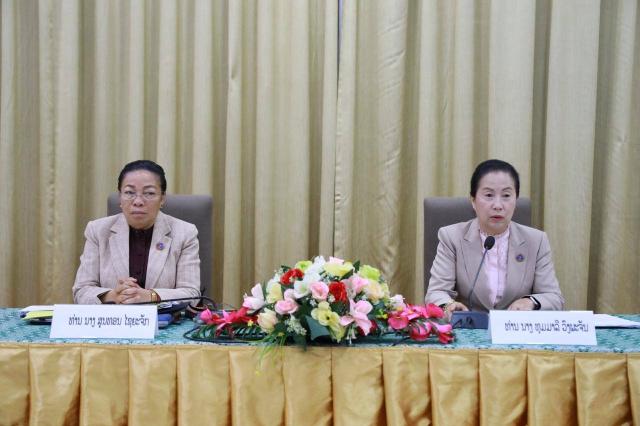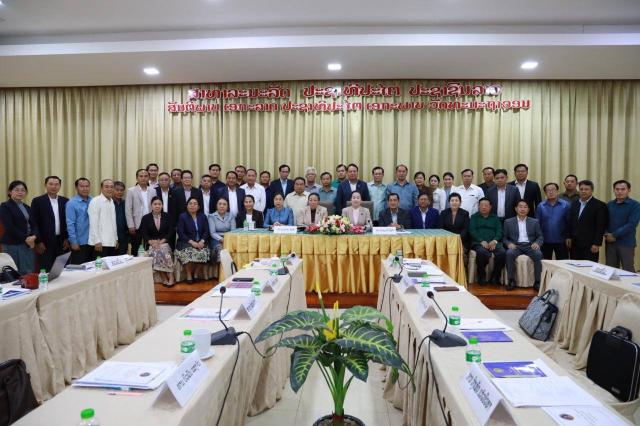National Assembly reviews five-year progress on public petitions with support from LuxDev
Laos 24.06.2025 Project
© Larvankham SOMSANIT

On 29 and 30 May 2025, in a strong push to advance democratic accountability and enhance access to justice, the Justice Committee of the National Assembly of the Lao PDR organised a review and lesson-learned meeting to assess the progress made in receiving, processing, and resolving public petitions. The event was supported by the Rule of law, access to justice and good governance programme (ROLAG), financed by the Grand Duchy of Luxembourg, and implemented by LuxDev, in collaboration with GIZ–CEGGA II.
The meeting was chaired by Ms. Thoummaly VONGPHACHANH, president of the Justice Committee, and honored by the presence of Mrs. Sounthon XAYYACHAK, secretary of the Party Central Committee and vice president of the National Assembly, who provides direct oversight of the committee’s work. Over 120 representatives from the National Assembly and the 18 Provincial People’s Assemblies attended, creating a vibrant platform for collective reflection, peer exchange, and future-oriented planning.
Review of petition handling

© Larvankham SOMSANIT
A key focus of the discussions was a comprehensive review of petition handling during the five-year tenure of the 9th National Assembly. Over this period, a total of 2,010 petitions were submitted by citizens nationwide. Of these, 1,355 petitions — equivalent to 84.37% — were formally accepted for consideration and resolution. These figures highlight the Assembly’s growing responsiveness to public concerns and its commitment to upholding participatory governance.
Dialogue and strategic priorities

© Larvankham SOMSANIT
Throughout the dialogue, participants engaged in open, constructive discussions to evaluate achievements, identify enduring challenges, and co-develop strategies for reform. The meeting concluded with consensus on twelve strategic priorities aimed at enhancing the credibility, transparency, and responsiveness of the petition system. These priorities include:
- strengthening the legal and policy framework, with focused attention on the effective implementation of the 2022 law on complaint resolution;
- enhancing the ethical and technical capacities of petition-handling officials through targeted training, professional development, and integrity safeguards;
- improving coordination and monitoring mechanisms across institutions to ensure timely follow-up and institutional accountability;
- fostering regional and international collaboration to draw on comparative experiences and best practices in complaint resolution and legislative responsiveness.
Conclusion
This high-level engagement reaffirmed the National Assembly’s role as a central pillar of democratic governance — serving as a vital conduit for citizens' voices and concerns. It also underscored the important role of development partners, particularly LuxDev and GIZ, in supporting institutional reform, capacity development, and inclusive governance practices.
Through this initiative, the National Assembly demonstrates a renewed commitment to building a transparent, inclusive, and rights-based system of governance — where every petition is not only received but also meaningfully addressed in the spirit of justice and public service.
About the programme
The ROLAG programme is financed by the Grand Duchy of Luxembourg and jointly implemented by the Ministry of Education and Sports, the Ministry of Justice and LuxDev, the Luxembourg Development Cooperation Agency, ILSTA and the University of Luxembourg.
Explore more
Discover the latest news from LuxDev and stay updated on the progress of cooperation projects and programmes implemented by the Agency.
All news

